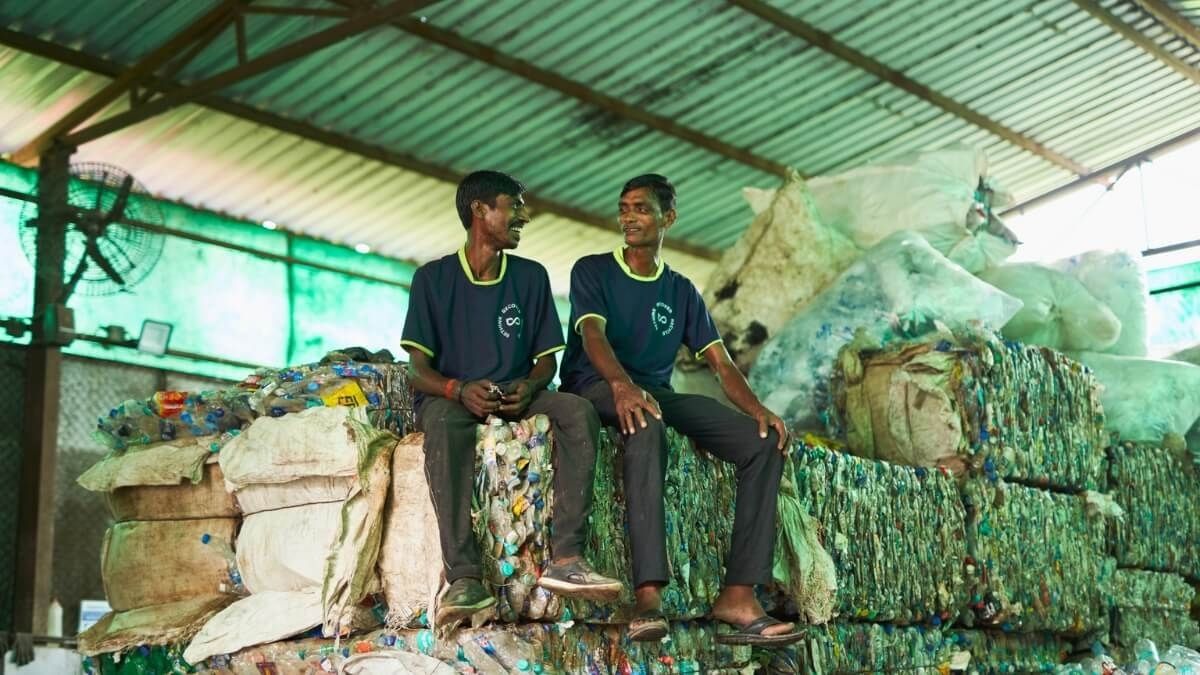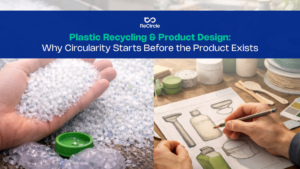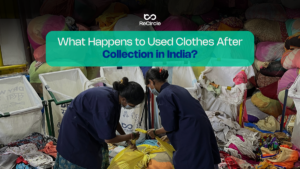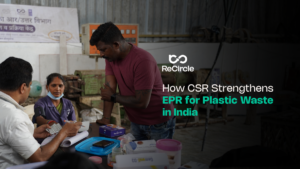When ReCircle began its journey in 2015, India faced a mounting waste crisis. The Deonar landfill fire in Mumbai had cast an ominous cloud—both literal and figurative—over the nation’s waste management system. At the time, waste was viewed as an inevitable by-product of growth rather than an opportunity for circular innovation. But we saw it differently.
At ReCircle, we believe waste is not just an environmental issue; it is a systemic challenge that calls for accountability, innovation, and collective action. We set out to transform India’s recycling ecosystem, building from the ground up a model rooted in sustainable waste management solutions and the principles of the circular economy.
Over the years, we’ve worked relentlessly with businesses, brands, governments and communities to prove that with the right intent and approach, we can close the loop on waste
From humble beginnings to nationwide impact, our story is one of resilience, growth, and impact at scale. Keep reading as we take you through our journey—from the early days of RaddiConnect to becoming a front-runner in India’s circular economy movement.
The Incident that sparked our Journey. (2015)
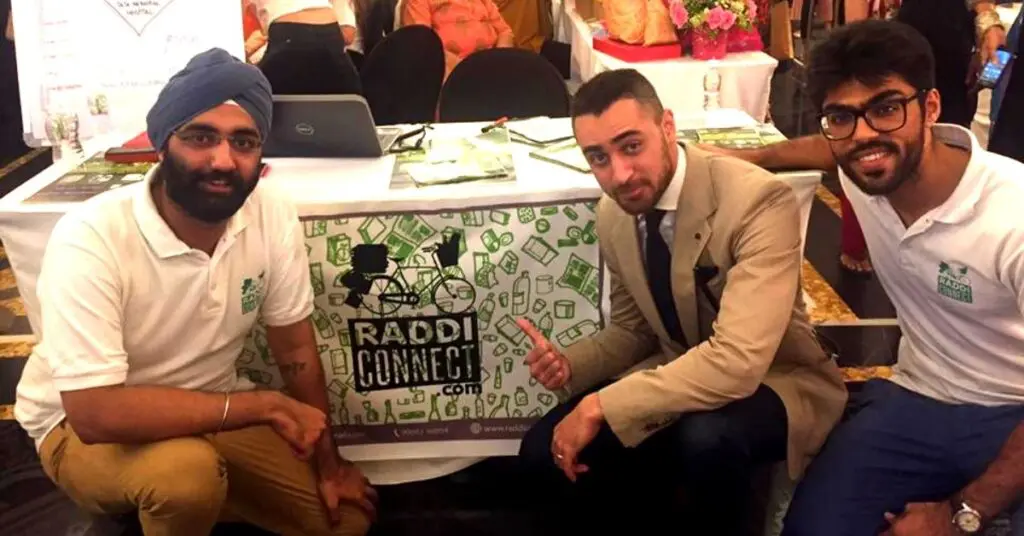
ReCircle’s earliest form took shape as RaddiConnect, a platform designed to connect households and businesses with local scrap aggregators. Born out of the urgency of Mumbai’s waste crisis, RaddiConnect was a pioneering step towards an organised recycling ecosystem in India. Inspired by on-demand service models, we streamlined scrap collection, making recycling accessible and efficient for everyone.
By bridging the gap between waste generators and collectors, we laid the foundation for what would grow into a powerful circular economy initiative. RaddiConnect wasn’t just about collection; it was about creating a mindset shift—positioning waste as a valuable resource, not a burden.
Laying the Foundation for Circular Change. (2016-2017)
Realising that collection alone wasn’t enough, we scaled our efforts by investing in Material Recovery Facilities (MRFs)—systems designed not just to manage waste, but to transform how it’s valued.
With the support of the BMC, our flagship Material Recovery Facility was established in Dahisar’s R-North Ward. By December 2017, it was fully operational—scaling the collection and processing of dry waste in the region and introducing ethical recycling and traceability into our operations.
In-house sorting and processing meant we could ensure waste was handled responsibly, diverting substantial volumes away from landfills and oceans. This moment marked a pivotal shift—from being a collection platform to becoming an end-to-end provider of sustainable waste management solutions.
Scaling Up Operations and Impact (2018)
Our commitment soon resonated on the global stage. In 2018, partnerships with the United Nations Development Programme (UNDP) and Hindustan Unilever Limited (HUL) became a turning point in our journey—amplifying not just our vision, but also our operations on the ground. Through their support, we were able to scale our Material Recovery Facilities (MRFs) with essential machinery and vehicles, directly strengthening our ability to process and divert waste more efficiently.
Together, we launched a robust Plastic Waste Management Programme that aligned with the Swachh Bharat Mission and the Solid Waste Management Rules. Beyond infrastructure, this partnership helped us mobilise over 1,000+ Safai Saathis across India, creating dignified livelihoods while enabling systemic change.
Powering India’s EPR Compliance (2019)
India’s introduction of Extended Producer Responsibility (EPR) regulations under the Plastic Waste Management Rules marked a pivotal moment for sustainable waste management. For many businesses, navigating EPR compliance was a daunting task. But at ReCircle, we saw it as an opportunity to bridge the gap between policy and practice.
Our robust EPR program offered brands a transparent, verifiable solution to track their plastic waste footprint. Through our growing network of collection and processing partners, we provided real-time insights and accountability, turning regulatory compliance into meaningful climate action.
From just seven locations, our EPR operations expanded to over 100 active sites nationwide. We enabled the responsible processing of more than 21,500 metric tonnes of plastic waste, solidifying our leadership in plastic waste management in India.
Today, leading brands, including Tata Starbucks, Dabur, Mondelez, and Hindustan Unilever, place their trust in ReCircle to meet their EPR obligations while contributing to real environmental progress.
A New Identity: Launching ReCircle (2021)
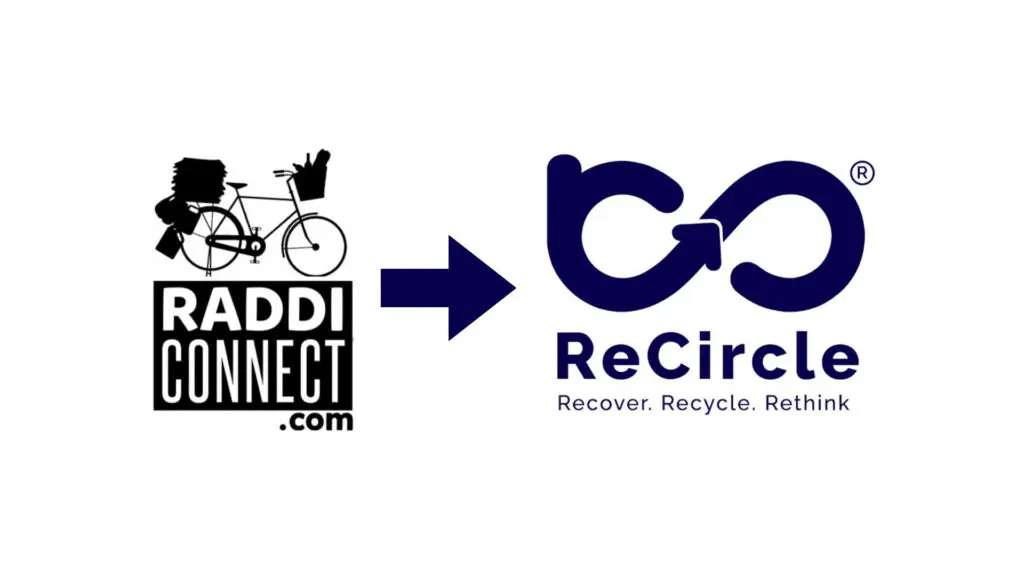
By 2021, our vision had expanded far beyond the possibilities of RaddiConnect. What began as a waste collection network had grown into a full-fledged ecosystem focused on circularity, traceability, and ethical recycling. It was time for our identity to evolve.
We rebranded as ReCircle to mirror our larger mission: to recover resources, recycle responsibly, and rethink the value of waste. This transition wasn’t just a name change—it signified a deeper shift in who we were and how we operated.
With this transformation, our portfolio grew to offer:
- Our Plastic Neutral Program service empowers businesses to voluntarily offset their plastic footprint through a transparent plastic credit system.
- Ethically Recycled Plastic (ERP) provided brands with responsibly sourced recycled materials, closing the loop within their supply chains.
- Through our Zero Waste Service vertical, we guided organisations and event organizers towards sustainable waste management, empowering them to integrate eco-friendly waste solutions at scale.
ReCircle had officially transformed into a holistic sustainability partner, offering end-to-end solutions for businesses aiming to adopt ethical recycling and waste-to-resource models.
Making Waste Traceable: Launching ClimaOne for Transparency (2022-2023)
As we scaled operations, we recognised the need for traceability and transparency in our waste management systems. In 2022, with support from the GSMA Innovation Fund and UK Aid, we built our proprietary tech platform, ClimaOne.
ClimaOne revolutionised the landscape of sustainable waste management solutions by providing real-time tracking and analytics across the entire reverse supply chain. For businesses, it offered unprecedented visibility into their plastic credit systems and compliance progress. For our Safai Saathis and partners, it unlocked new earning potentials and operational efficiencies.
With ClimaOne, the invisible became visible. We digitised India’s informal waste network, bringing structure to a system that had long operated in the shadows.
Building Scalable, Inclusive Solutions with Global Leaders (2023)
In 2023, ReCircle deepened its impact by confronting one of the industry’s toughest challenges: low-value plastics. Our partnership with the Alliance to End Plastic Waste, and The Incubation Network launched the Scale 100(t) project that fortified our Dahisar Material Recovery Facility, quadrupling its processing capacity while elevating workplace safety standards.
Beyond technological upgrades, we invested in people. We rolled out specialised safety training and improved conditions for our workforce, reinforcing our commitment to building an inclusive waste management system in India.
With a network spanning over 400 locations, more than 45 processing partners, and over 161,000 metric tonnes of waste diverted from landfills and oceans, our scale is matched only by our impact.
Accelerating Growth with Fund Raise (2023-2024)
In 2023, ReCircle secured its Pre-Series A funding, led by Flipkart Ventures, 3i Partners, and Acumen Fund, alongside passionate impact investors. This milestone catalysed our expansion into new waste streams, enabled supply chain efficiencies, and strengthened our commitment to our Safai Saathis.
By early 2024, a bridge round funding from Venture Catalysts and Mumbai Angels further fuelled our ambitions. We accelerated the launch of state-of-the-art recycling facilities and broadened our ecosystem, advancing our vision for circular economy solutions in India.
Our investors recognised what we have always believed: waste is not an environmental burden but an invaluable resource driving inclusive growth and sustainable development.
Expanding Beyond Plastics: Textile Recovery Facility (2024)
Understanding that true circularity extends beyond plastics, we turned our attention to the fashion industry’s environmental footprint. India generates over 7,200 kilotonnes of textile waste annually, much of it destined for landfills or incinerators.
In 2024, we launched our Textile Recovery Facility (TRF), a first-of-its-kind centre for pre- and post-consumer textile waste. With specialised training programs and advanced segregation methods, TRF integrates textiles into our circular supply chain, reducing landfill dependency and conserving resources.
Aligning with the Sustainable Development Goals (SDGs)
Every step in our journey is aligned with the United Nations Sustainable Development Goals. Every initiative we undertake is a step toward building a more equitable, sustainable, and resilient future for all. By measuring both our direct impact and the indirect progress we facilitate, we work to realise India’s vision for a more equitable and environmentally conscious future in line with the global 2030 agenda.
Our initiatives directly contribute to:
- SDG 11: Sustainable Cities and Communities, by enhancing nationwide waste recovery.
- SDG 12: Responsible Consumption and Production, by fostering ethical recycling and awareness.
- SDG 13: Climate Action, through increased recovery volumes and climate-conscious solutions.
- SDG 14: Life Below Water, by preventing ocean-bound waste through targeted campaigns.
- SDG 17: Partnerships for the Goals, by mobilising resources and fostering public-private collaborations.
Our mission is not only to build a circular economy in India but to catalyse systemic change that benefits people and the planet alike.
Building a Dignified, Inclusive Waste Economy
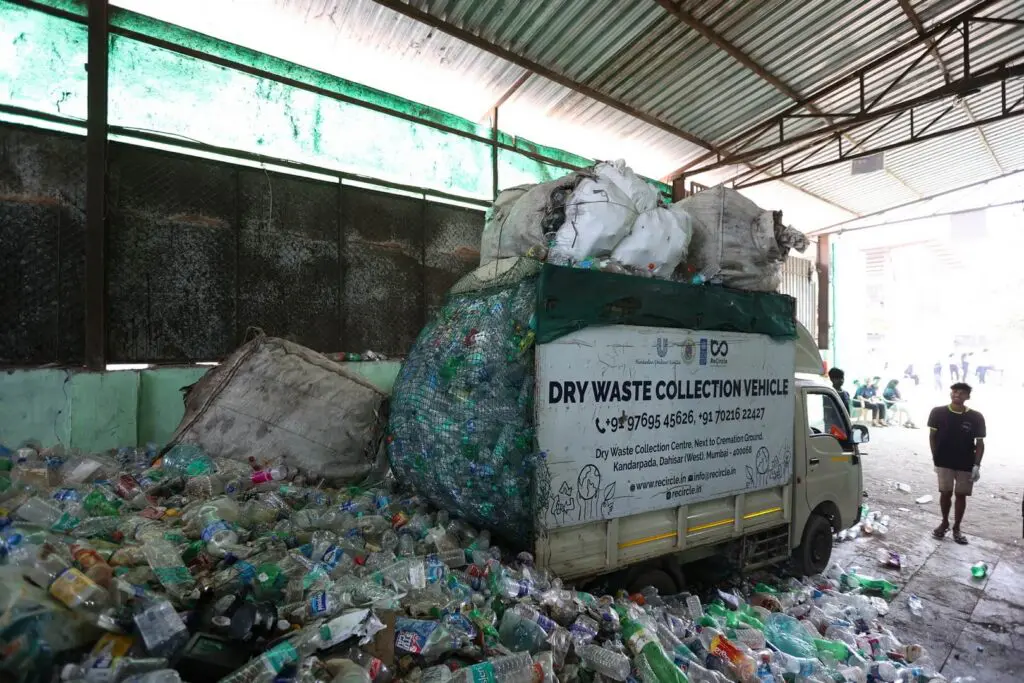
India’s waste sector has long depended on an informal workforce, often operating without recognition or security. ReCircle is changing this narrative by formalising livelihoods and championing inclusion.
Our Safai Saathis, Collection Partners, and Processing Partners form the backbone of our ecosystem. Through structured training, health benefits, legal protections, and fair pay, we empower our Safai Saathis, many of whom now report new found independence and pride.
We believe that when safai saathis thrive, so does the entire system. ReCircle is committed to ensuring that the people managing our waste are not just seen, but valued and supported.
A Future Where Waste Has Value
ReCircle was born from a moment of crisis—but what we’ve built is a movement of possibility. Every ton recovered, every brand onboarded, every innovation launched—it’s all part of a future where waste has value.
We believe in that future. And we’re inviting you to build it with us.

